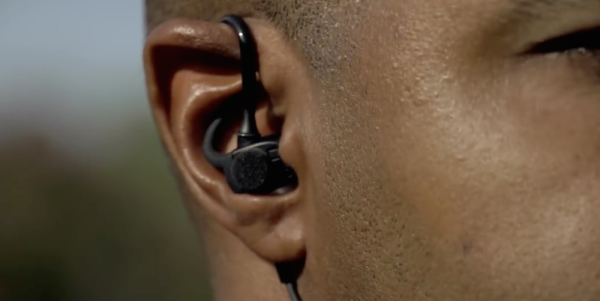

Hearing loss is a huge problem for active-duty service members and veterans alike, but the military has done very little in the past to preempt auditory damage beyond issuing earplugs to troops downrange. Instead, the responsibility falls on the Department of Veterans Affairs to provide medical treatment and compensate veterans grappling with service-connected auditory issues.
But U.S. Army researchers are working to fix that with the tactical communications and protective system (TCAPS), a wearable designed to allow soldiers to communicate effectively in combat situations, without exposing their ears to damaging battlefield noises.
Army Lt. Col. Amy Blank and 1st Lt. Maggie Schad, two audiology experts from the Walter Reed National Military Medical Center, are working with PEO Soldier to develop and field TCAPS, which will allow soldiers to communicate effectively in combat situations, without exposing their ears to damaging battlefield noises.
“Traditional hearing protection dampens loud level sounds from damaging hearing, but also blocks much needed low level inputs that soldiers need to hear to maintain their situational awareness on the battlefield,” Blank said. The wearable TCAPS fit like earbuds, which allow soldiers to communicate over radio while also protecting their hearing against the racket of automatic weapons fire. U.S. Special Forces troops were fitted for the first iteration of the TCAPS in 2014, but Blank and Schad are hoping they’ll be made a service-wide requirement. After all, maintaining hearing is key for readiness and mission success.
“In 2015, a study was conducted at Fort Campbell that simulated mild, moderate, and profound hearing loss profiles compared to normal hearing soldiers during team level maneuvers,” Schad said. “The results showed as hearing loss worsened, the lethality of the soldiers significantly decreased.”
Protecting service members’ hearing could also provide relief to the VA’s budget as well. According to a VA study, in 2015, over 1 million veterans were receiving disability compensation for hearing loss, and 1.45 million were compensated for tinnitus.
Military CME reported that in 2006, veteran compensation for hearing loss and tinnitus cost approximately $1.2 billion, and costs continue to be an issue as hearing loss has become the military’s “silent epidemic.”
Tinnitus, the VA found, is also linked to emotional distress in veterans: “71.9 percent of the 91 veterans with tinnitus they studied also had a diagnosis of anxiety, 59.3 percent had depression, and 58.2 percent had both conditions.”
“Our hope is to be able to make more ‘educated and informed’ decisions regarding hearing readiness for soldiers before we determine what level of hearing loss becomes critical to safety and situational awareness,” Blank said.